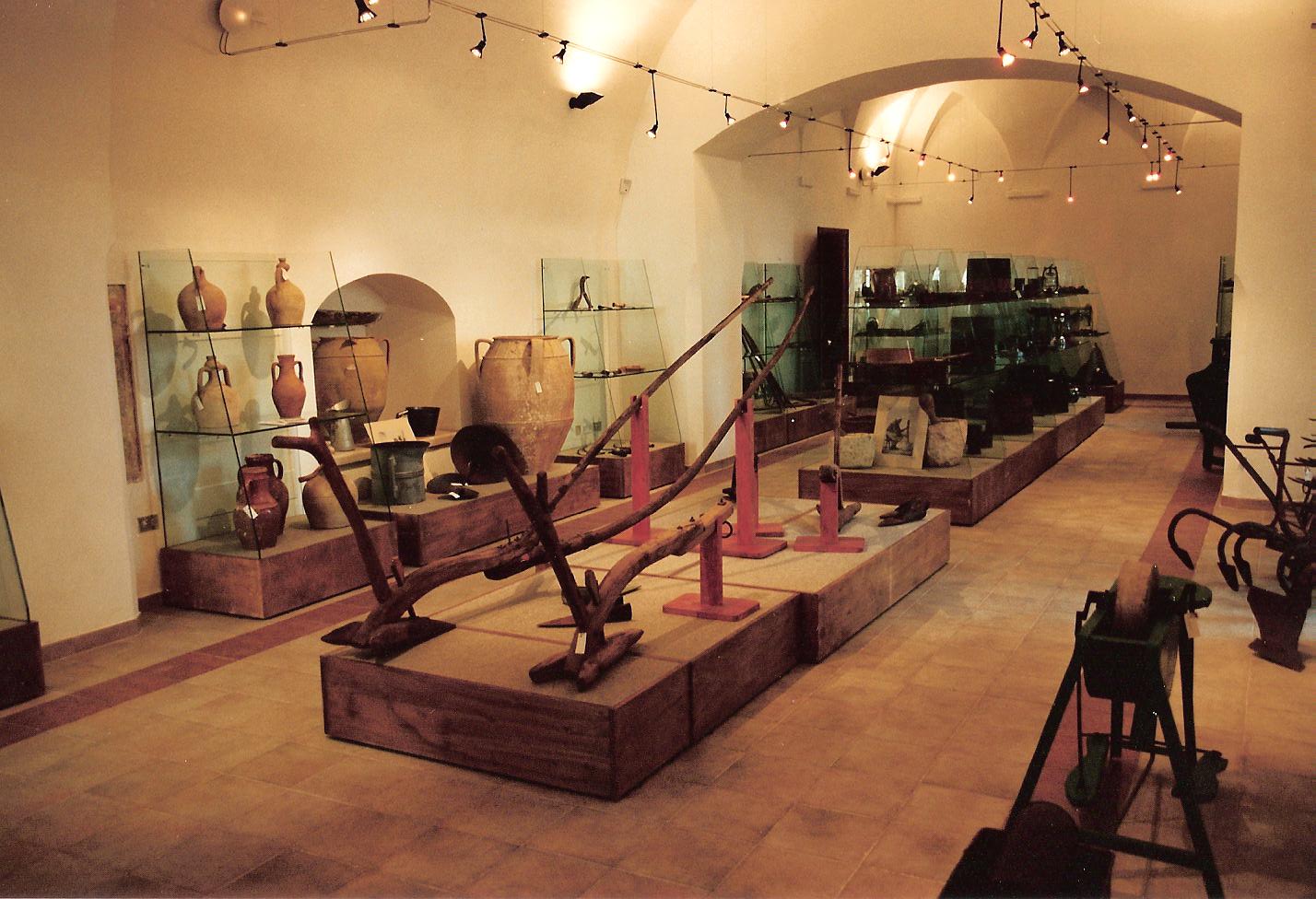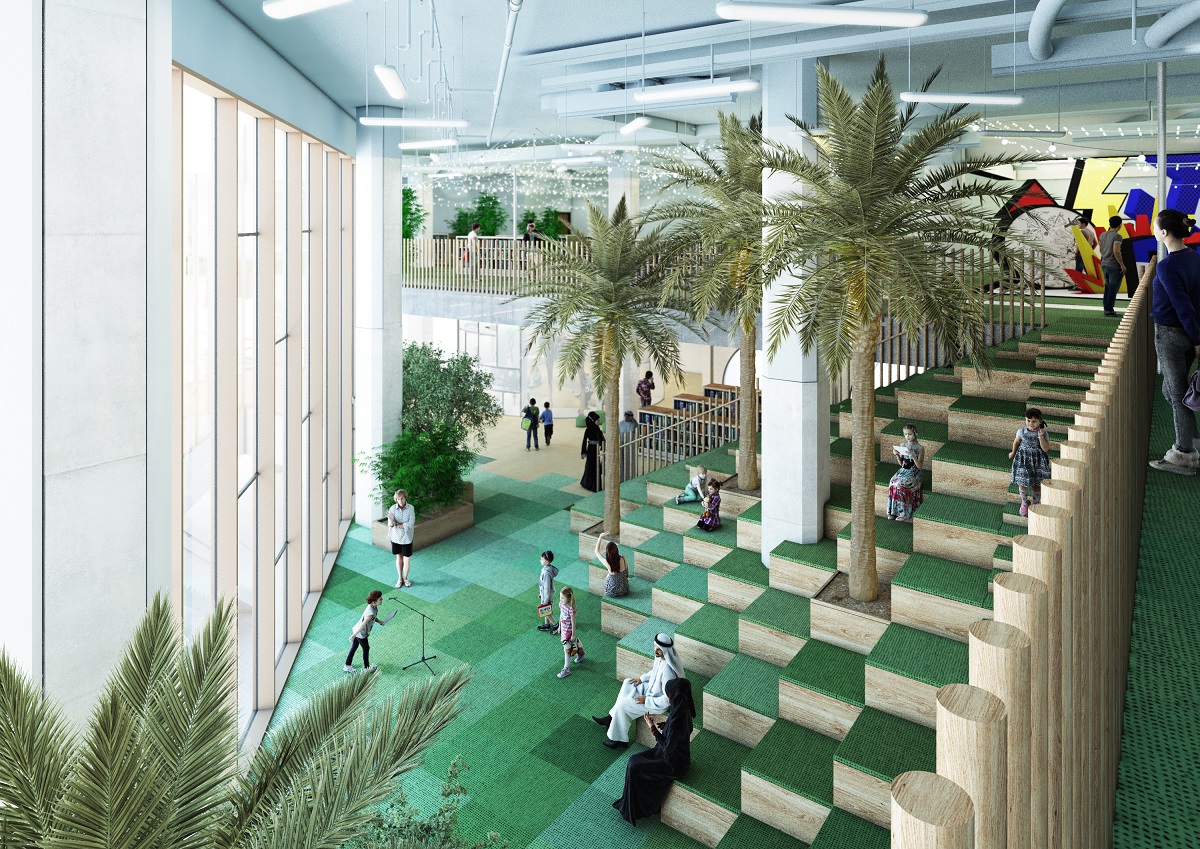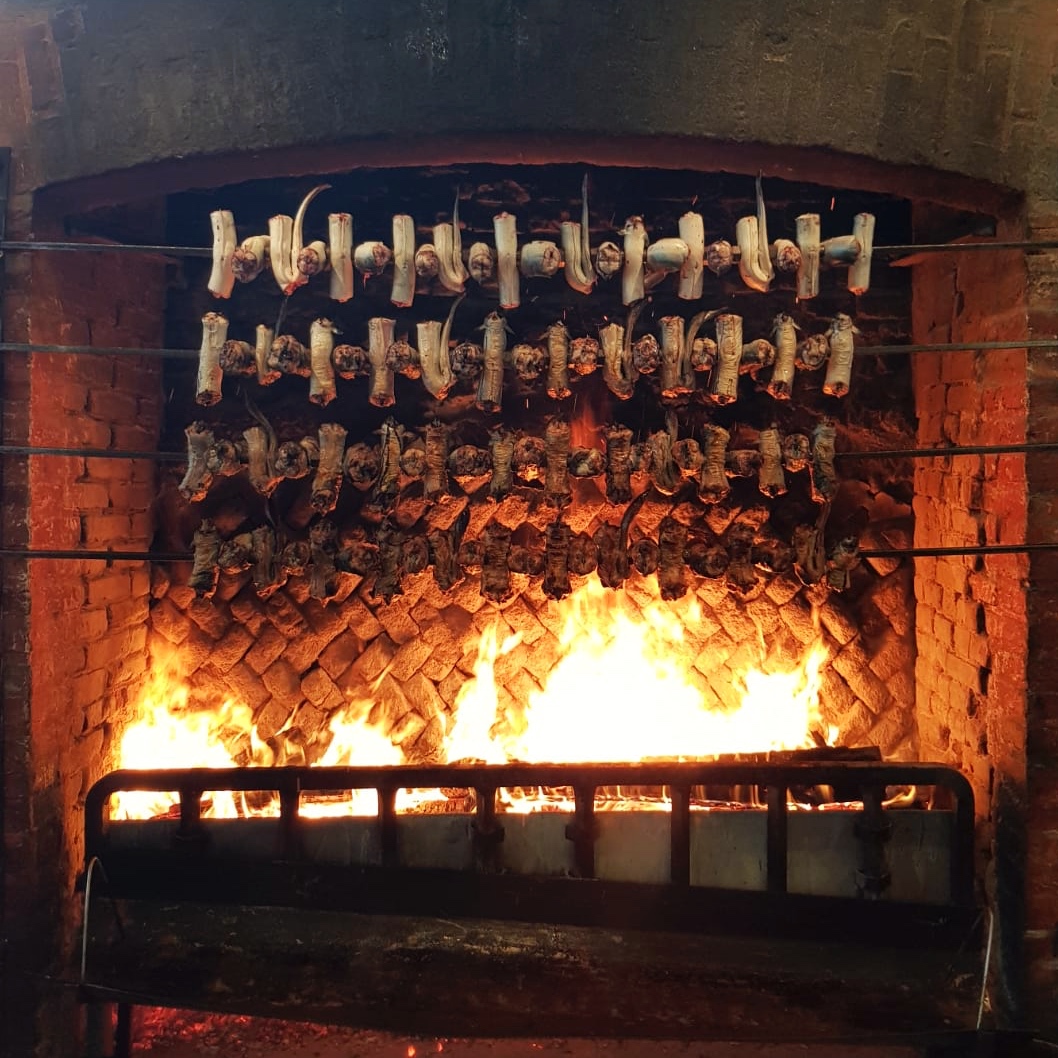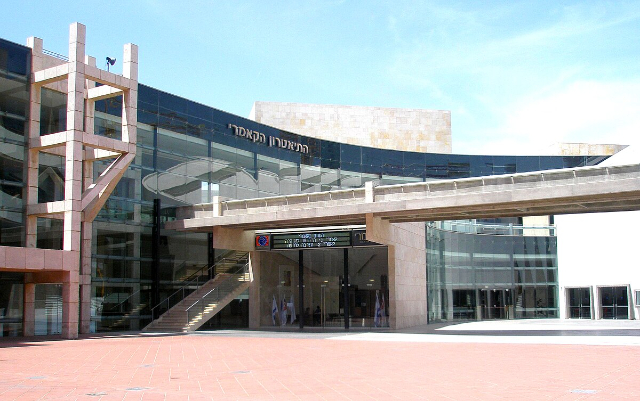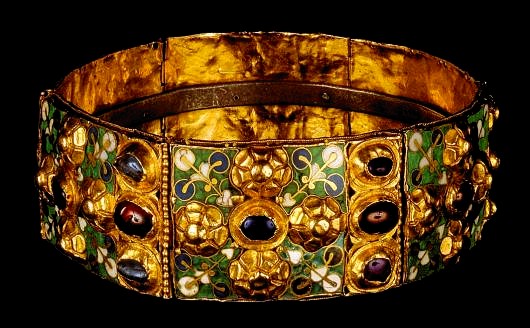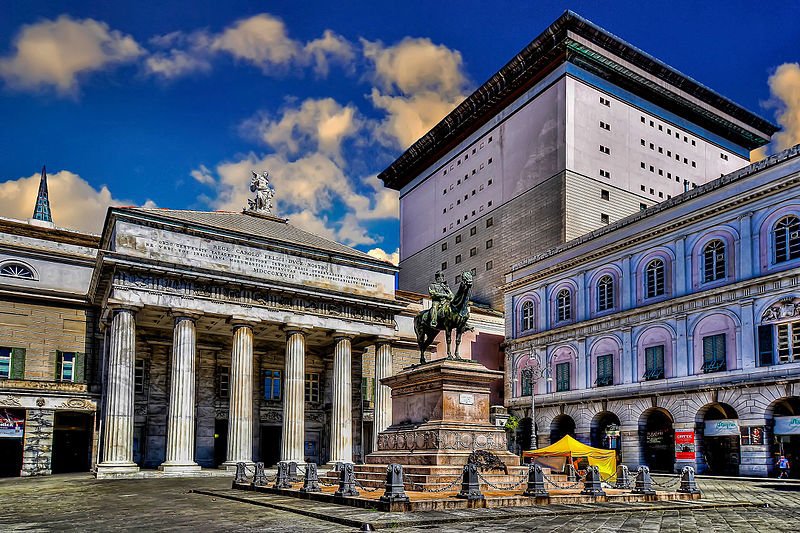The Museum of Rural Civilization of San Vito is located in the fascinating setting of the Convent of the Dominican Fathers, built in 1954 thanks to a votive donation for the construction of the Church of the Annunziata. The Dominican Fathers remained there until 1809, when the monastery was closed as a result of the suppression of religious guilds. From 1865 the building was the seat of the Civil Hospital, then of a Beggar’s Hospital and finally of the Kindergarten "Greek". Currently, in addition to the Museum of Rural Civilization, the building houses the Municipal Library "John XXIII".
In the rooms of the Museum are kept the local history and rural traditions, where the preserved objects tell the daily life "of our grandparents ". There are collected various tools and utensils that bear witness to the activities carried out by man between the 19th century and the first half of the 20th century.
In fact, all the working classes are represented: the farmers (whose work is amply demonstrated by the many agricultural tools used for ploughing and ploughing, harvesting and harvesting), the blacksmith, the carpenter, the saddler, the grinder, the shoemaker, etc..
Inside from the peasant civilization also emerges the existence of a particular space, all feminine: the domestic environment, undisputed reign of women, a place often neglected, but full of meanings, a deep sign of family life. Evidence of this environment are the various pans and containers on display that were used for cooking, storing, transporting water and wine, washing, etc..
All the objects and tools in the Museum are the result of careful research among the local population, but they are above all a spontaneous and selfless gift from many citizens of San Giovanni.
A stop of the "Strada dell’Olio Extravergine di Oliva Collina di Brindisi" it is represented in the section hosted by the Museum that tells the history of olive oil, of the art linked to its production and of the rural culture as a precious legacy for the younger generations.
Visiting the Museum is a good opportunity to remember and reflect on what rural civilization, guardian of the great values of humanity, has been.
